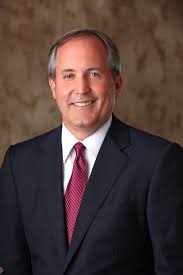 AUSTIN – Texas Attorney General Ken Paxton and Alaska Attorney General Kevin Clarkson led 21 states in an amicus brief filed with the United States Court of Appeals for the Ninth Circuit defending the religious liberty of public employees. Joe Kennedy coached football at Bremerton High School until he was suspended midway through the season for praying silently on the field after each game. The school district prohibited Kennedy from coaching out of baseless fear that his individual prayers violated the Establishment Clause.
AUSTIN – Texas Attorney General Ken Paxton and Alaska Attorney General Kevin Clarkson led 21 states in an amicus brief filed with the United States Court of Appeals for the Ninth Circuit defending the religious liberty of public employees. Joe Kennedy coached football at Bremerton High School until he was suspended midway through the season for praying silently on the field after each game. The school district prohibited Kennedy from coaching out of baseless fear that his individual prayers violated the Establishment Clause.
Last year, when the case was first appealed to the United States Supreme Court, Justice Alito—joined by Justices Thomas, Gorsuch, and Kavanaugh—expressed concern that the lower courts had improperly read the Establishment Clause to require school control over virtually everything an employee does, even when off-duty. After the district court again ruled for the school district, Coach Kennedy’s case is once again before the Ninth Circuit. Texas’s amicus brief argues in defense of the religious liberty guaranteed to Coach Kennedy and all public employees by the First Amendment.
“By preventing Coach Kennedy from exercising his religious freedom, the district has demonstrated constitutionally impermissible hostility toward religion. In fact, the district’s shifting demands show a determination to infringe on his First Amendment right to religious exercise,” said Attorney General Paxton. “An unfounded fear that the school district might be seen as endorsing religion is no justification for prohibiting a man from honoring his deeply-held beliefs. Religious expression and public service can and must coexist.”
Denying public employees the right to engage in private religious expression, such as kneeling in silent prayer for less than a minute, also directly threatens religious diversity. By forcing employees to forgo their constitutionally protected right to religious liberty, public institutions ensure that their employees must either hide their beliefs entirely or hold no religious beliefs at all.
Read a copy of the amicus brief here.

